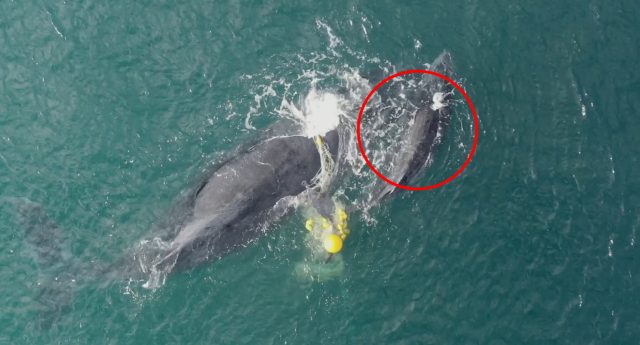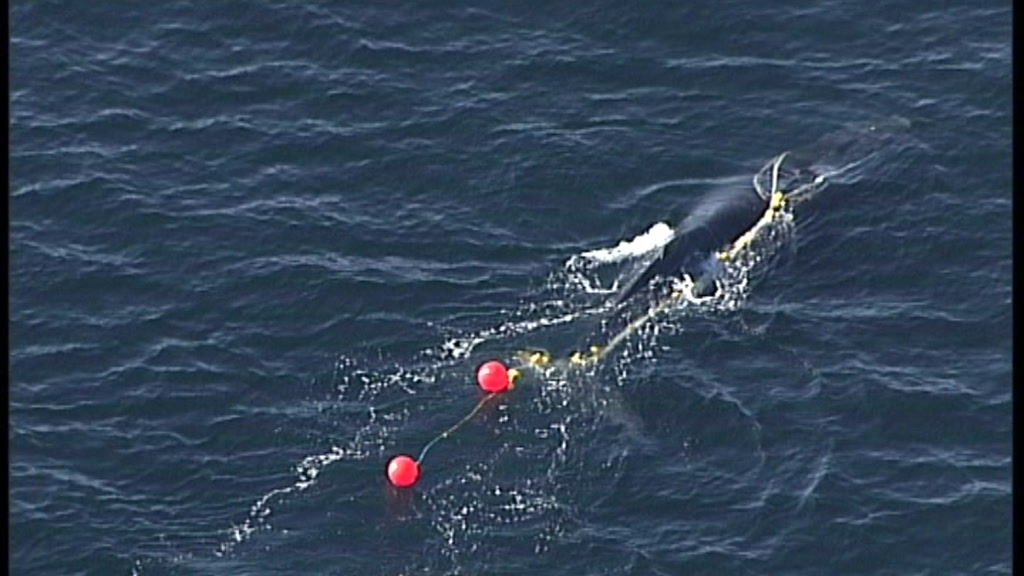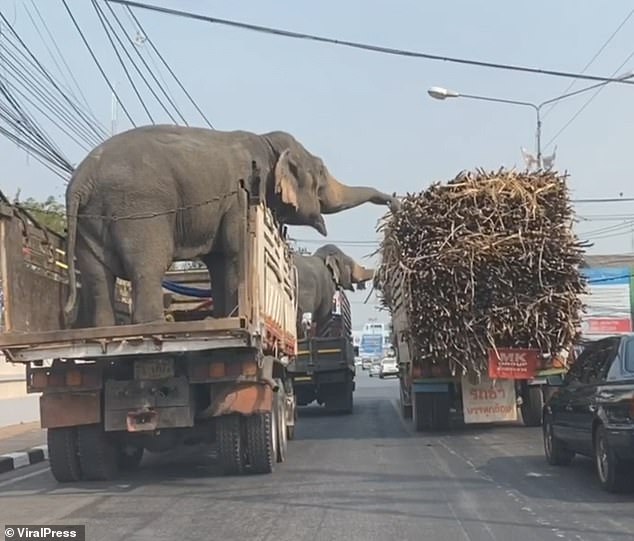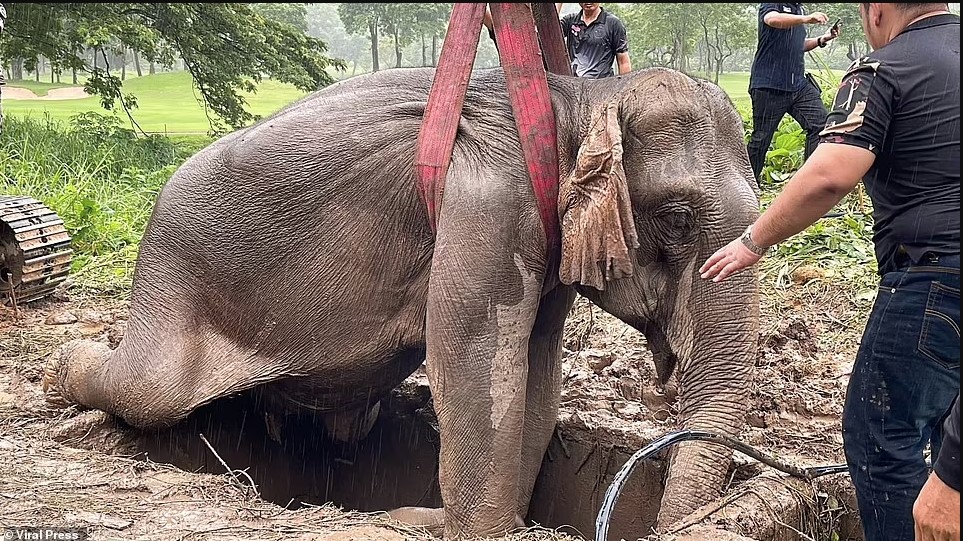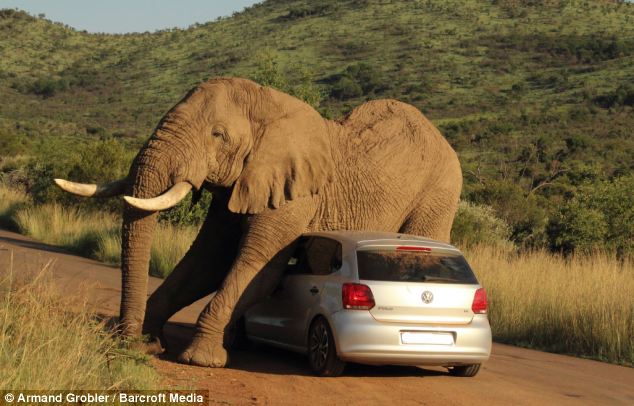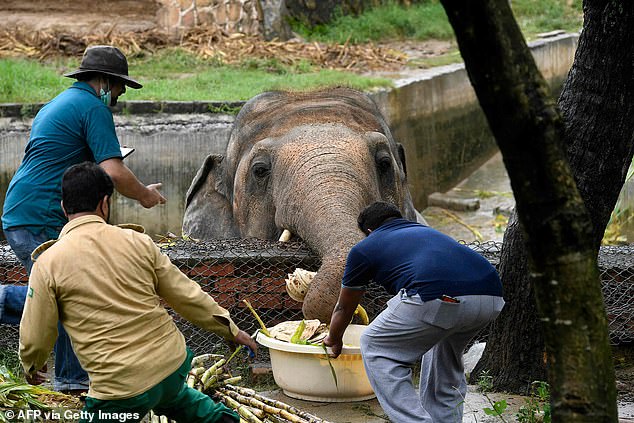NSW blames Queensland’s shark control program after humpback whale drags net hundreds of kilometres south
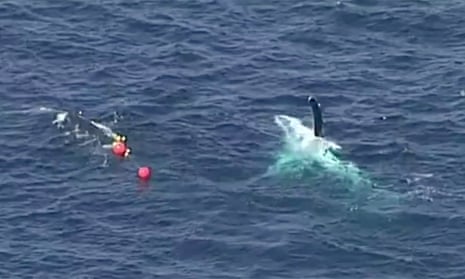
The humpback calf freed from netting in waters off Sydney’s northern beaches is one of an unprecedented number of whale entanglements this migration season.
The tired and distressed calf, swimming south alongside its mother, became entangled in a shark mesh panel from Queensland’s shark control program.
It dragged the net for hundreds of kilometres before it was cut free on Friday morning.
The calf, which appeared to have part of the net stuck in its mouth, was first reported to authorities earlier this week after it was spotted at Scotts Head on the mid-north coast.
Rescuers lost sight of the animal until it was seen again overnight off Sydney.
The Organisation for the Rescue and Research of Cetaceans in Australia (ORRCA) said the number of whale entanglements in NSW this season was unprecedented and there had only been a handful of successful rescues.
“The number has been incredibly high,” said ORRCA president Jacqueline O’Neill.
“There has been close to 40, if not just over 40. Last year, we had just over 20.”
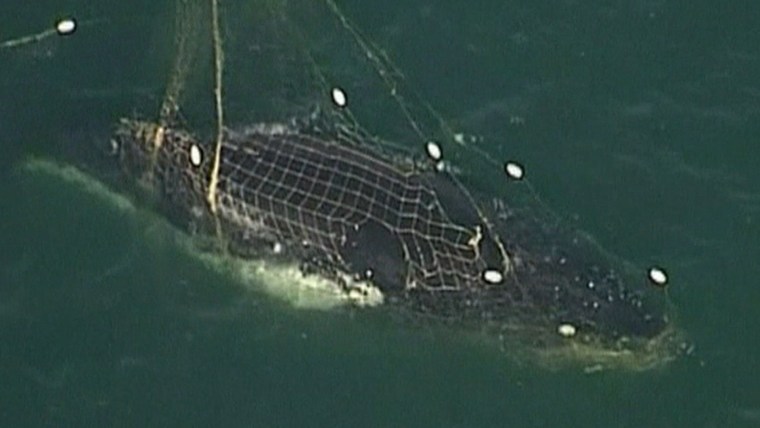
O’Neill said the spike is likely largely due to the explosion in the number of humpback whales following stricter whaling laws, and because the migration season now runs almost year-round.
Shortly after the calf was freed on Friday morning, the NSW Department of Primary Industries released a statement laying the blame on the Queensland government.
“The NSW Department of Primary Industries (DPI) can confirm the whale was definitely NOT entangled in its SMART Drumlines,” it said in a statement.
“The whale was entangled in a shark mesh panel from the Queensland shark control program which it has carried down the coast from Coolangatta or Noosa.”
Lawrence Chlebeck, a spokesman for Human Society International, said the latest entanglement was entirely avoidable.
HSI took the Queensland government to court over its shark control program in the Great Barrier Reef National Park and won.
“They continue to use methods that are unable to protect swimmers and yet kill our precious marine wildlife. It needs to end,” he said.
